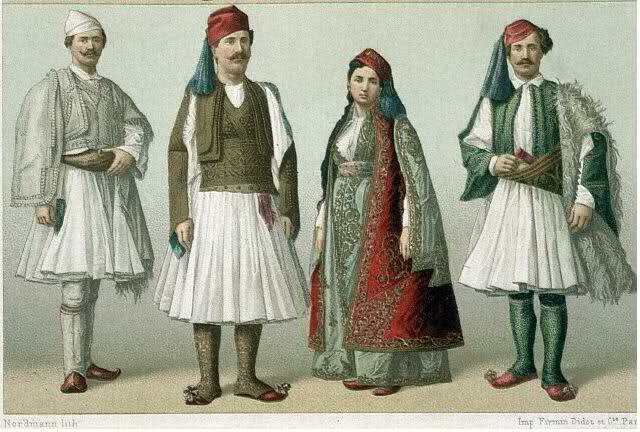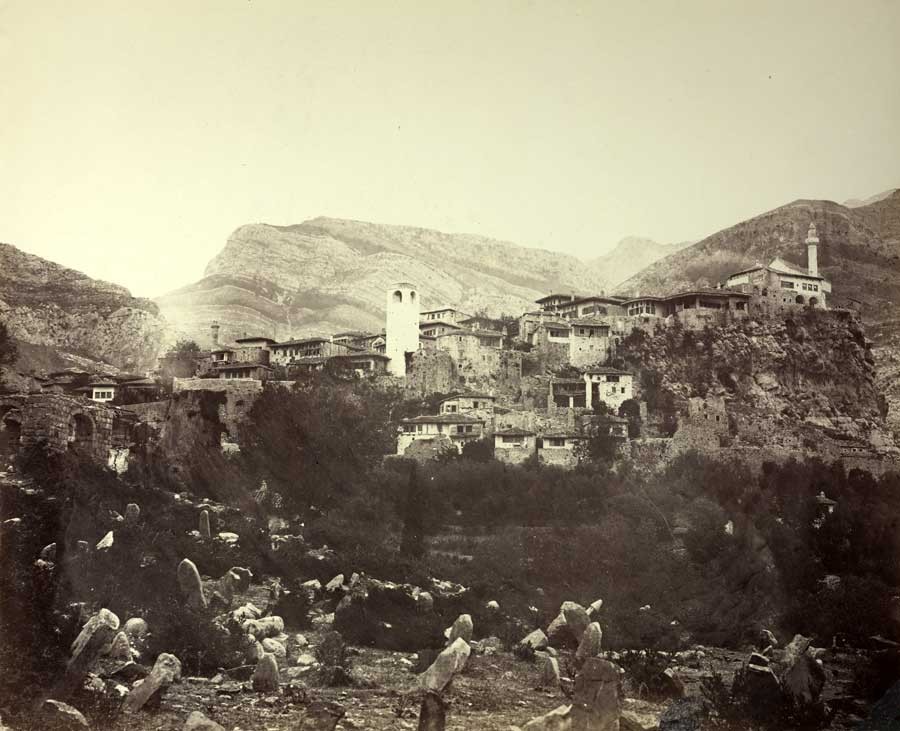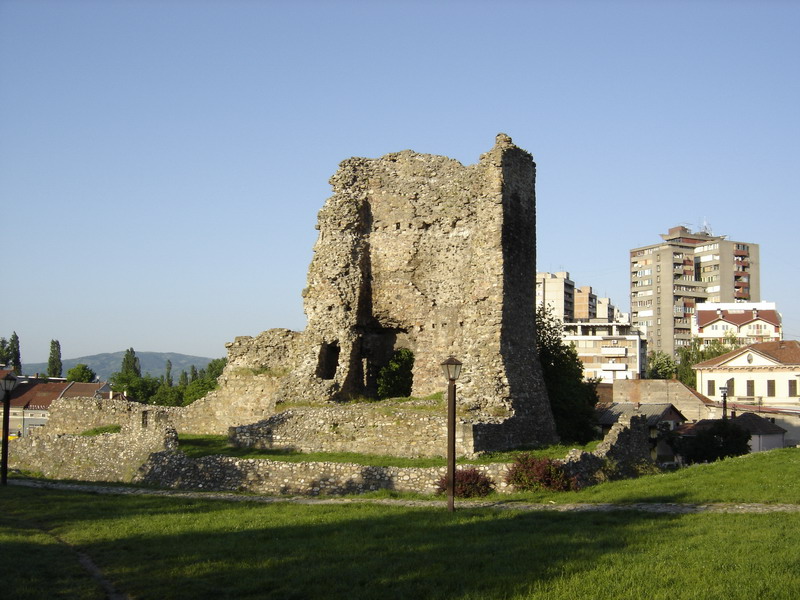|
Balšić Noble Family
The House of Balšić ( sr-Cyrl, Балшићи; ), or Balsha, were a noble family that ruled " Zeta and the coastlands" (current-day southern Montenegro and northern Albania), from 1362 to 1421, during and after the fall of the Serbian Empire. Balša, the founder, was a petty nobleman who held only one village during the rule of Emperor Dušan the Mighty (r. 1331–1355), and only after the death of the emperor, his three sons gained power in Lower Zeta after acquiring the lands of ''gospodin'' Žarko (fl. 1336–1360) under unclear circumstances, and they then expanded into Upper Zeta by murdering ''voivode'' and ''čelnik'' Đuraš Ilijić (r. 1326–1362†). Nevertheless, they were acknowledged as ''oblastni gospodari'' of Zeta in edicts of Emperor Uroš the Weak (r. 1355–1371). After the death of Uroš (1371), the family feuded with the Mrnjavčevići, who controlled Macedonia. When the last lord of the main branch of the family, Balša III died in 1421 without an hei ... [...More Info...] [...Related Items...] OR: [Wikipedia] [Google] [Baidu] |
Zeta Under The Balšići
Zeta ( sr-cyrl, Зета; ; or ''Genta'') was one of the medieval polities that existed between 1371 and 1421, whose territory encompassed parts of present-day southern Montenegro and northern Albania, ruled by the Balšić family. Zeta was a crown land of the Grand Principality and Kingdom of Serbia, ruled by heirs to the Serbian throne from the Nemanjić dynasty. In the mid-14th century, Zeta was divided into Upper and Lower Zeta, governed by magnates. After Stefan Dušan (r. 1331–55), his son Stefan Uroš V ruled Serbia during the fall of the Serbian Empire, through a gradual disintegration of the Empire as a result of decentralization in which provincial lords gained semi-autonomy and eventually independence. The Balšići wrestled the Zeta region in 1356–1362 when they removed the two rulers in Upper and Lower Zeta. Ruling as lords, they empowered themselves and over the decades became an important player in Balkan politics. Zeta was united into the Serbian Despotate ... [...More Info...] [...Related Items...] OR: [Wikipedia] [Google] [Baidu] |
Đuraš Ilijić
Đuraš Ilijić ( sr-Cyrl, Ђураш Илијић, 1326–62) was a Serbian commander and nobleman who served the Serbian monarchs Stefan Dečanski (r. 1321–1331), Stefan Dušan (r. 1331–1355) and Uroš V (r. 1355–1371), from 1326 until his death in 1362. He had the title of ''čelnik'' ("head"), and governed Upper Zeta. He is an ancestor of the Crnojević noble family (a branch of the Đurašević). Origin and early life Đuraš was born in Zeta (crown land), Zeta, the son of Ilija, and grandson of Đuraš Vrančić. His grandfather served King Stefan Milutin (r. 1282–1321) with the court title of ''stavilac'', while his father had the title of ''kefalija'', and governed Zeta. It has been claimed that Đuraš had two brothers, Nikola and Vladin, or one brother, Nikola Vladin. King Stefan Dečanski's confirmation on the rights of Ragusan merchants dating to March 25, 1326, was attended by ''vojvoda'' Mladen, ''tepčija'' Vladoje, and ''čelnik ''Čelnik'' ( sr-Cyrl, ч� ... [...More Info...] [...Related Items...] OR: [Wikipedia] [Google] [Baidu] |
Kanun (Albania)
The Kanun (also , other names include ) is a set of Albanian traditional customary laws, which has directed all the aspects of the Albanian tribal society.. For at least the last five centuries and until today, Albanian customary laws have been kept alive only orally by the tribal elders. The success in preserving them exclusively through oral systems is an indication of ancient origins. Strong pre-Christian motifs mixed with motifs from the Christian era reflect the stratification of the Albanian customary law across various historical ages. The Kanun has held a sacred – although secular – longstanding, unwavering and unchallenged authority with a cross-religious effectiveness over the Albanians, which is attributed to an earlier pagan code common to all the Albanian tribes. The Albanian ''Kanun'' is regarded as a literary monument that is of interest to Indo-European studies, reflecting many legal practices of great antiquity that find precise echoes in law codes follo ... [...More Info...] [...Related Items...] OR: [Wikipedia] [Google] [Baidu] |
Dubrovnik
Dubrovnik, historically known as Ragusa, is a city in southern Dalmatia, Croatia, by the Adriatic Sea. It is one of the most prominent tourist destinations in the Mediterranean Sea, Mediterranean, a Port, seaport and the centre of the Dubrovnik-Neretva County. In 2021, its total population was 41,562. Recognizing its outstanding medieval architecture and fortifications, UNESCO inscribed the Old City of Dubrovnik as a World Heritage Site in 1979. The history of the city probably dates back to the 7th century, when the town known as was founded by refugees from Epidaurum (). It was under protectorate of the Byzantine Empire and later under the sovereignty of the Republic of Venice. Between the 14th and 19th centuries, Dubrovnik ruled itself as a Free state (polity), free state. The prosperity of the city was historically based on trade, maritime trade; as the capital of the maritime Republic of Ragusa, it achieved a high level of development, particularly during the 15th and 16t ... [...More Info...] [...Related Items...] OR: [Wikipedia] [Google] [Baidu] |
Đurađ II Balšić
Đurađ II Balšić ( sr-Cyrl, Ђурађ II Балшић; ) or George II Balsha 1385 – April 1403), was the Lord of Zeta from 1385 to 1403, as a member of the Balšić noble family. He was the son of Stracimir Balšić, and succeeded his paternal uncle Balša II in ruling Zeta. He reigned from 1386 up to 1389 in the still officially undissolved Serbian Empire in the form of a family alliance, then up to 1395 as an Ottoman vassal. He ruled until his death in 1403, when he was succeeded by his only son, Balša III. According to some historians, Serbian epic poetry identifies Đurađ II with Strahinja Banović. Background and early life His father was Stracimir, one of the three Balšić brothers who came to rule Zeta in the 1360s. His mother was Milica Mrnjavčević (''Jerina''), the daughter of Serbian King Vukašin Mrnjavčević. Accession On 18 September 1385, Đurađ's uncle Balša II was killed at the Battle of Savra, while fighting the Ottomans. Following th ... [...More Info...] [...Related Items...] OR: [Wikipedia] [Google] [Baidu] |
Constantine Of Kostenets
Constantine of Kostenets (; – after 1431), also known as Constantine the Philosopher ( sr-Cyrl-Latn, Константин Филозоф, Konstantin Filozof, separator=" / "), was a medieval Bulgarian scholar, writer and chronicler, who spent most of his life in the Serbian Despotate. He is best known for his biography of Serbian despot Stefan Lazarević, which George Ostrogorsky described as "the most important historical work of old Serbian literature",Ostrogorsky, ''History of the Byzantine State'', translated by Joan Hussey, revised edition, (New Brunswick: Rutgers University Press, 1969), p. 471 and for writing the first Serbian philological study, ''Skazanije o pismeneh'' (A History on the Letters). He followed the writing style of the Old Serbian ''vita'', first made popular in the Serbian scriptoria of the 12th century. Biography Constantine was born in Bulgaria, probably in Kostenets. In his youth, he attended school in the capital Veliko Tarnovo, and was taught b ... [...More Info...] [...Related Items...] OR: [Wikipedia] [Google] [Baidu] |
Names Of The Albanians And Albania
The Albanians () and their country Albania (''Shqipëria'') have been identified by many ethnonyms. The native endonym is Shqiptar. The name "Albanians" (Latin: ''Albanenses/Arbanenses'') was used in medieval Greek and Latin documents that gradually entered European languages from which other similar derivative names emerged. Linguists believe that the ''alb'' part in the root word originates from an Indo-European term for a type of mountainous topography, meaning "hill, mountain", also present in ''Alps''. Through the root word ''alban'' and its rhotacized equivalents ''arban'', ''albar'', and ''arbar'', the term in Albanian became rendered as ''Arbëreshë'' () for the people and ''Arbëria'' () for the country. Contemporary Albanian language employs a different ethnonym, with modern Albanians referring to themselves as ''Shqiptarë'' and to their country as ''Shqipëria''. Two etymologies have been proposed for this ethnonym: one, derived the name from the Albanian word for ... [...More Info...] [...Related Items...] OR: [Wikipedia] [Google] [Baidu] |
Albanians
The Albanians are an ethnic group native to the Balkan Peninsula who share a common Albanian ancestry, Albanian culture, culture, Albanian history, history and Albanian language, language. They are the main ethnic group of Albania and Kosovo, and they also live in the neighboring countries of Albanians in North Macedonia, North Macedonia, Albanians in Montenegro, Montenegro, Albanians in Greece, Greece, and Albanians in Serbia, Serbia, as well as in Albanians in Italy, Italy, Albanians in Croatia, Croatia, Albanians in Bulgaria, Bulgaria, and Albanians in Turkey, Turkey. Albanians also constitute a large diaspora with several communities established across Europe and the other continents. Albanian language, The language of the Albanians is an Indo-European languages, Indo-European language and the only surviving representative of the Albanoid, Albanoid branch, which belongs to the Paleo-Balkan languages, Paleo-Balkan group. Albanians ... [...More Info...] [...Related Items...] OR: [Wikipedia] [Google] [Baidu] |
Ulcinj
Ulcinj () is a town in the Coastal Montenegro, Coastal region of Montenegro and the capital of Ulcinj Municipality. It has an urban population of 11,488. As one of the oldest settlements in the Adriatic Sea, Adriatic coast, it was founded in 5th century BC. It was captured by the Roman Empire, Romans in 163 BC from the Illyrians. With the division of the Roman Empire, it was a part of the Byzantine Empire and Kingdom of Serbia (medieval), Serbian Kingdom in the Middle Ages until the Republic of Venice captured it in 1405. It was known as a base for piracy. In 1571, Ulcinj was conquered by the Ottoman Empire with the aid of North African corsairs after the Battle of Lepanto. The town gradually became a Muslim-majority settlement. Under the Ottomans, numerous hammams and mosques, and a clock tower were built. Ulcinj remained a den of piracy until this was finally put to an end by Mehmed Pasha Bushati. In 1673, the self-proclaimed Jewish Messiah Sabbatai Zevi was exiled here from Ista ... [...More Info...] [...Related Items...] OR: [Wikipedia] [Google] [Baidu] |
Bar, Montenegro
Bar (Montenegrin language, Montenegrin: Bar, Бар, , ) is a town and seaport in Coastal Montenegro, Coastal region of Montenegro. It is the capital of the Bar Municipality and a center for tourism. According to the 2023 census, the city proper had 15,868 inhabitants, while the total population of Bar Municipality was 46,171. Name Bar is supposed to be a shortened Slavic variant of ''Antivari''. The name is thought to be derived from the Latin ''Antibarum'' or ''Antibari'', which later in Greek was transformed into ''Antivárion / Antivari'' due to its pronunciation. "Antibari", meaning "opposite Bari", is a name taken because of it is location across the Adriatic Sea from Bari in Italy. Variations are in Italian language, Italian, ''Antivari / Antibari''; in Albanian language, Albanian, ''Tivari'' or ''Tivar''; in Turkish language, Turkish, ''Bar''; in Greek language, Greek, Θηβάριον, ''Thivárion'', Αντιβάριον, ''Antivárion''; in Latin, ''Antibarium''. His ... [...More Info...] [...Related Items...] OR: [Wikipedia] [Google] [Baidu] |
Republic Of Venice
The Republic of Venice, officially the Most Serene Republic of Venice and traditionally known as La Serenissima, was a sovereign state and Maritime republics, maritime republic with its capital in Venice. Founded, according to tradition, in 697 by Paolo Lucio Anafesto, over the course of its History of the Republic of Venice, 1,100 years of history it established itself as one of the major European commercial and naval powers. Initially extended in the ''Dogado'' area (a territory currently comparable to the Metropolitan City of Venice), during its history it annexed a large part of Northeast Italy, Istria, Dalmatia, the coasts of present-day Montenegro and Albania as well as numerous islands in the Adriatic Sea, Adriatic and eastern Ionian Sea, Ionian seas. At the height of its expansion, between the 13th and 16th centuries, it also governed Crete, Cyprus, the Peloponnese, a number of List of islands of Greece, Greek islands, as well as several cities and ports in the eastern Me ... [...More Info...] [...Related Items...] OR: [Wikipedia] [Google] [Baidu] |
Stefan Lazarević
Stefan Lazarević ( sr-Cyrl, Стефан Лазаревић, 1377 – 19 July 1427), also known as Stefan the Tall (), was a Serbian ruler as prince (1389–1402) and Despot (court title), despot (1402–1427). He was also a diplomat, legislator, ktetor, patron of the arts, poet and one of the founding members of the Order of the Dragon. The son of Prince Lazar Hrebeljanović, he was regarded as one of the finest knights and military leaders of his time. After the death of his father Battle of Kosovo, at Kosovo (1389), he became ruler of Moravian Serbia and ruled with his mother Princess Milica of Serbia, Milica (a Nemanjić dynasty, Nemanjić), until he reached adulthood in 1393. Stefan led troops in several battles as an Ottoman Empire, Ottoman vassal, until asserting independence after receiving the title of ''despot'' from the Byzantine Empire, Byzantines in 1402. Becoming a Hungarian ally in 1403–04, he received large possessions, including the important Belgrade and Gol ... [...More Info...] [...Related Items...] OR: [Wikipedia] [Google] [Baidu] |






